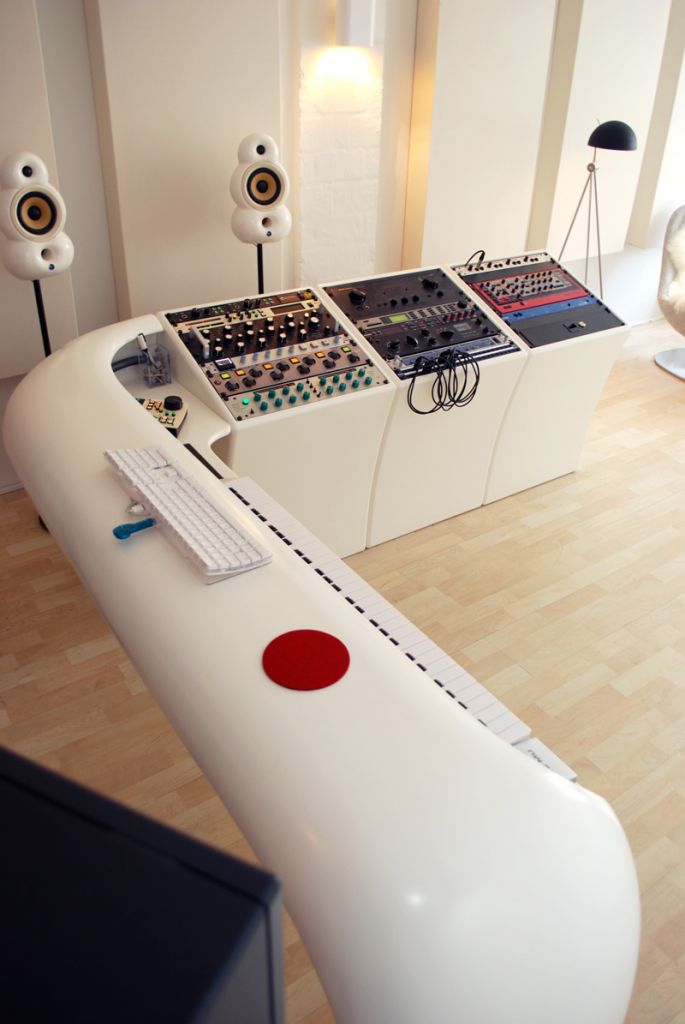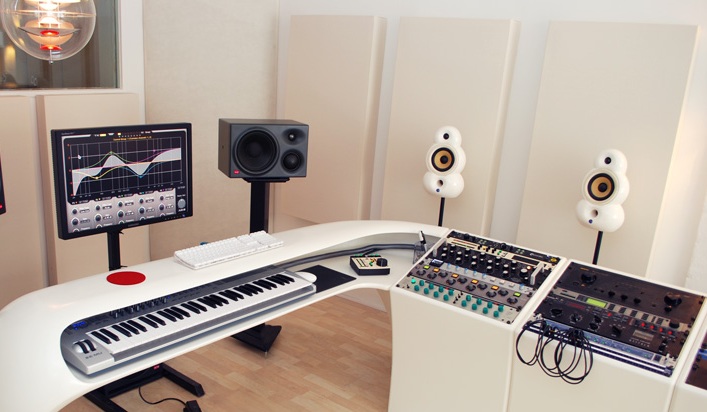
Holger Lagerfeldt is a Danish composer and record producer known for numerous pop and dance hit songs. Lagerfeldt received a Danish Grammy nomination as Producer of the Year, and he has received more than 50 IFPI-certified gold and platinum records, for a total of more than six million units sold, including five certified #1 hits on the official Scandinavian Dance Charts. In 2004 he founded the first online audio mastering facility in Denmark, Online Mastering.
We recently caught up with him and asked a few questions.

GIK Monster and 244 Bass Traps
GIK: Your studio is unlike any we’ve seen before and you definitely have cultivated a one-of-a-kind look. What advice would you give to someone who’s creating/designing their own studio?
Holger: Some prefer to work in a cozy environment, but I enjoy the clean and bright feel of my studio. However, the most important aspect of any studio design is not the look or even the gear, but the acoustics. That means finding the right room dimensions and tuning the space until the frequency response of the room is fairly flat and it still sounds natural. Try to avoid large, reflective surfaces near your monitoring area, and experiment with different listening positions. Good monitoring comes next, but even the best monitors will fail to reproduce the music accurately if the acoustics are bad.
GIK: You moved from producing & mixing to mastering in 2004. What’s the biggest challenge of being a mastering engineer?
Holger: After a ten year career in production, I felt I was chasing my own tail creatively speaking. I took a serious interest in the engineering side of music in the early 2000s, and launched my mastering business some years later. Every day is a challenge when you are mastering, that is part of what makes it fun. I am always striving to optimize my workflow and perfect my skills – it never stops.
GIK: You offer private lessons as well as classroom courses on recording, producing, mixing, mastering, and the music business in general. What is the most common misconception about music mastering?
Holger: Unfortunately I do not have much time to do courses in my studio, but I do give master classes and I am a guest lecturer in audio engineering at the university and the music conservatory. The misconceptions cover both extremes: some glorify the mastering engineer as an audio alchemist who can turn crap into gold, while some believe that mastering is vastly overrated and that anybody can do it.

GIK Monster and 244 Bass Traps
GIK: What is the most important part of the mastering process?
Holger: Most mastering engineers work with a variety of musical genres, so a general love of music and sound is a prerequisite. Understanding the soul or intention of the music I am working on is the first step before I dial any knobs. Communicating with my client is another important aspect. I often instantly hear what needs to be done to a mix, but the process of getting there may require experimentation in order to find the best solution. I keep an open mind and always try to do what is right for the music – mastering is part technique and part feeling.
GIK: How has GIK Acoustics helped this process?
Holger: My studio is now in its third iteration, and I chose the GIK products because the technical specifications and visual design matched my needs perfectly. Having a well-tuned room lets me focus on the real task at hand: providing balanced and great sounding masters.



